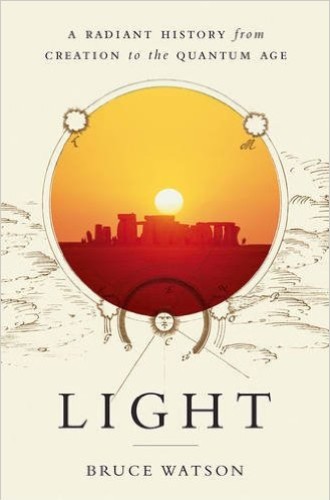Light’s remaining mysteries
On August 19, 1839, when Louis-Jacque-Mandé Daguerre revealed that he had invented a way to capture light and imprint its image from a camera obscura onto a plate, the massive crowd at the Institut de France in Paris was astounded. They’d heard rumors of Daguerre’s images for years, but many doubted such a thing was possible.
Some people thought the invention was sinful. “The wish to capture evanescent reflections is not only impossible,” a German newspaper bellowed, “but the mere desire is blasphemy. God created man in His own image, and no man-made machine may fix the image of God.” Artists were also flummoxed, one decrying, “From today, painting is dead.” All because of a proto-photograph. Now, 300 million photos are uploaded to Facebook every day. It’s estimated that 1 trillion photos were taken in 2015. That’s a lot of blasphemy.
Read our latest issue or browse back issues.
Light has often provoked such overwrought reactions, as Bruce Watson masterfully shows. Beyond a mere history of light, this book is also an intellectual history of Western culture. It would be difficult to find another subject so intertwined with so many disciplines: philosophy, theology, poetry, visual art, astronomy, and physics. The thinkers who’ve pondered and theorized and painted and sung about light comprise a veritable who’s who of Western intellectualism: Aristotle, Aquinas, and Dante, Galileo, Haydn, and Monet, Newton, Edison, and Einstein.
Watson doesn’t exactly breeze through four millennia, but he avoids getting bogged down in any one period, discovery, or person. Yet there is a distinctive turning point. The book pivots at the year 1800. In part one, the primary hero is Newton. In part two, it’s Einstein. In part one, light is mysterious, religious, and divine. In part two, it’s science, hard science.
Light has long vexed humans. The Hebrew Bible’s “let there be light” is echoed in many ancient sacred texts. Mani’s third-century hybrid of the teachings of Jesus, Zoroaster, and Buddha resulted in what he called a “religion of light.” Mani’s most famous follower-turned-critic, Augustine, argued that humans cannot become light but can only reflect light, for light comes only from God.
The earliest philosophical and theological debates about light followed similar lines of argument. Philosophers debated: Does light come from an object into the eye or does light emanate from the eye and illuminate an object? Theologians debated: Is God light or does God reflect light? Over the centuries, the questions changed: Is light a thing or a quality? Is light a particle or a wave?
But the real question about light for those of us who preach and teach the Christian scriptures is this: Is light in any way still mysterious? We proclaim an ancient text that was composed when light most definitely was mysterious. God not only created the light, God led the Israelites through the wilderness as a pillar of light. Jesus is the light of the world, and Paul assured us, “You are all children of light and children of the day; we are not of the night or of darkness.”
But nowadays, what’s the difference? With two taps, my mobile phone turns into a flashlight and dispels the darkness. Light pollution masks the stars. A full 20 percent of all electricity generated is used to power lights. And the invention of the LED promises to bring more artificial light to the world and further drown out the stars, since it emits a blue light which scatters more widely than yellow light. Astronomers are worried.
Watson tries valiantly to convince us that light is still mystical, still divine. From Stonehenge at the solstice to the Ganges at the Dev Deepawali festival, he reports on the throngs of people who await first light. Christians have our own versions: the Advent wreath, lit to fight back the darkness of December; and the Pascal candle, lighted from a fire in the courtyard to celebrate the lengthening days and the light from the empty tomb.
Are these traditions just religious nostalgia? Darkness simply does not carry the uncertainty and fear that it once did, now that light is abundant. Therefore, neither is light the potent symbol of the divine. To the exclamation, “Jesus is the light of the world!” a 21st-century teenager might reply, “Meh.”
Maybe this is why Watson’s book is so important, why it can be such a boon to preachers and teachers: he reminds us just how magical and mysterious light really is. Galileo, Newton, and Einstein all went to their graves frustrated that they had not figured out light. Yes, we’re surrounded by ubiquitous light, but its mysteries have not been wholly conquered. Astronomers keep looking outward, hoping to see beyond the stars to the first light of the universe. And physicists hope to use lasers to generate a clean and limitless source of energy.
Maybe science is the new cathedral and scientists our priests. If so, light is still divine.







